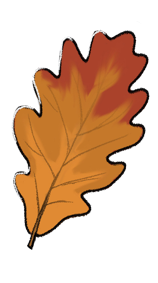For sites concerned with the natural environment of this state as a whole as well as those for scientific institutions and companies with multiple locations throughout the state, and for links to similar categories at other geographic levels.
More information
More information
Subcategories 23
Related categories 4
Sites 11
University of Florida Institute of Food and Agricultural Sciences handbooks and factsheets on production agriculture, natural resources, the environment, forestry, veterinary medicine, rural development, pest control, food safety, lawns, home gardening, and related topics.
Ruben P. Sauleda, an environmental advocate with a Ph.D. in biology from the University of South Florida, offers a history of damage to the Everglades, especially the Big Cypress National Preserve, as a result of government policies and actions. Photo documentation.
Florida Museum of Natural History defines zooarchaeology, archaeobotany, and archaeopedology, with illustrated articles by University of Florida professors on sites such as Lake Monroe and Mayan ruins.
Organized in sections for consumers, business, educators, and governments, with links to subjects such as air, water, waste, beaches, and land.
Nonprofit group of environmental health professionals. Details of the annual education meeting, training and job opportunities, awards, scholarship fund, membership, and links.
Photographs and information about the state's flowers, trees, reptiles, mammals, spiders, fungi, and other organisms.
Research, education, training, and certification in solar and other renewable energy sources at the Cocoa campus of the University of Central Florida.
Site for ambitious program integrating statewide environmental databases to be searchable by keyword or specimen name, and tagged by geographic names and coordinates. Established in 1997, suspended in 2005 awaiting re-design.
Lists scheduled events and links to nature preserves in the state, together with maps, directions, hours, fees and activities.
The Center for Training, Research and Education for Environmental Occupations covers solid waste, air and water quality, Geographic Information Systems (GIS), and dealing with hazardous materials including lead and asbestos.
How to make your surroundings more wildlife-friendly. Includes info on native Florida plant life and wild life, gardening with Florida's native plants, butterfly gardening, bird gardening, wildlife gardening plus books and photos.
University of Florida Institute of Food and Agricultural Sciences handbooks and factsheets on production agriculture, natural resources, the environment, forestry, veterinary medicine, rural development, pest control, food safety, lawns, home gardening, and related topics.
Organized in sections for consumers, business, educators, and governments, with links to subjects such as air, water, waste, beaches, and land.
Lists scheduled events and links to nature preserves in the state, together with maps, directions, hours, fees and activities.
How to make your surroundings more wildlife-friendly. Includes info on native Florida plant life and wild life, gardening with Florida's native plants, butterfly gardening, bird gardening, wildlife gardening plus books and photos.
Florida Museum of Natural History defines zooarchaeology, archaeobotany, and archaeopedology, with illustrated articles by University of Florida professors on sites such as Lake Monroe and Mayan ruins.
Site for ambitious program integrating statewide environmental databases to be searchable by keyword or specimen name, and tagged by geographic names and coordinates. Established in 1997, suspended in 2005 awaiting re-design.
The Center for Training, Research and Education for Environmental Occupations covers solid waste, air and water quality, Geographic Information Systems (GIS), and dealing with hazardous materials including lead and asbestos.
Research, education, training, and certification in solar and other renewable energy sources at the Cocoa campus of the University of Central Florida.
Photographs and information about the state's flowers, trees, reptiles, mammals, spiders, fungi, and other organisms.
Ruben P. Sauleda, an environmental advocate with a Ph.D. in biology from the University of South Florida, offers a history of damage to the Everglades, especially the Big Cypress National Preserve, as a result of government policies and actions. Photo documentation.
Nonprofit group of environmental health professionals. Details of the annual education meeting, training and job opportunities, awards, scholarship fund, membership, and links.

Last update:
March 3, 2023 at 6:15:05 UTC

Check out
Science: Biology: Flora and Fauna: Fungi
- Recently edited by shedragon
- Recently edited by shedragon